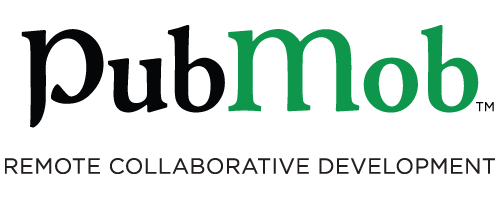Mob Programming
Curious or concerned about the use of the word “mob?” Read about the origins of mob programming, as well as current efforts to change the name of the practice.
Mob programming origins
Woody Zuill presented the concept of mob programming at Agile 2013, describing experiences with a team at Hunter Industries dating back to 2011. His Agile 2014 experience report summarizes mob programming as “a software development approach where the whole team works on the same thing, at the same time, in the same space, and at the same computer.”
In 2012, Woody blogged about the origins of the name mob programming. After experimenting with a number of names, such as crowd programming and team programming, the team settled on mob programming as something that seemed a natural fit.
Woody describes mobbing in a positive light: “I like to think of it as in the age-old traditional image of a mob: With pitchforks and torches chasing down evil, or at least chasing down something that we all are willing to agree is evil.”
Connotations of the word “mob”
As positively as Woody spins the word mob, it’s hard to escape its many negative associations. A mob on its own might simply be a group of people, but it might also be a disorderly bunch—an unruly mob, for example. The Mob refers to (the) Mafia. And mob rule is only looked on as a good thing by those doing the ruling.
Worse, the verb form mobbing is associated with bullying behavior.
Still, positive connotations exist—flash mobs, as an example, were popular only a few years ago.
Ensemble programming
Recently, a number of prominent proponents of the practice have settled on the gentler name of ensemble programming (not to be confused with the user-interface design concept of the same name). The author of an early treatise on the practice, Maaret Pyhäjärvi, has retitled the PDF to Ensemble Programming Guidebook. Some of our own PubMob owners have been promoting this term as well.
Mob programming and PubMob
PubMob, short for public mob programming, is a forum and marketplace for remote collaborative development. To be consistent with our brand, we’ve standardized on the phrase mob programming, which is still in broad use. Our session leads are free to prefer ensemble programming if they choose. We avoid use of the gerund mobbing for its distinct association with bullying.
PubMob is a memorable term and brand. Like flash mobs and like Woody’s take on the notion of mob programming, we celebrate the positive things that derive from remote collaborative development. You’ll remember PubMob sessions as safe and engaging sessions, and you’ll want to come back for more.

